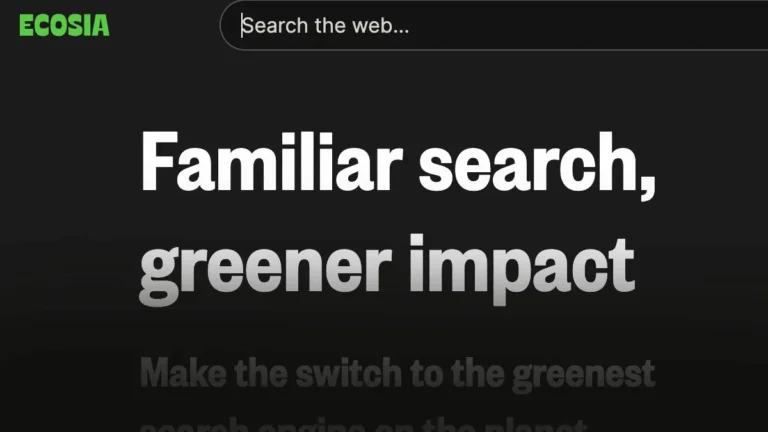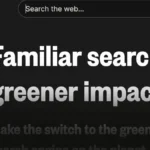The other day, I was going through the stats and graphs of ‘That Shopping Guide‘ in Google Analytics, when I saw a ‘new’ source/medium of traffic- search traffic coming from Ecosia.org. Honestly, the name itself was new to me. I had not heard of it before. So I did a quick Google search and the results and the story amused me. Ecosia is a ‘search engine that plants trees’! Well, I did some research on this search engine and its business model. Here are the key pointers…
Table of Contents
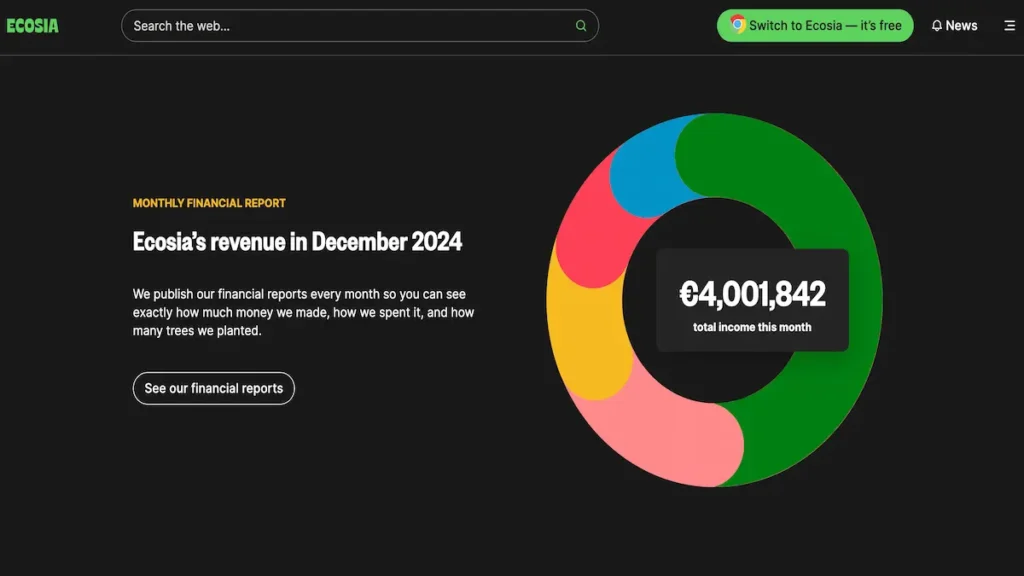
Ecosia: What Is This Thing?
When Christian Kroll, a German entrepreneur, founded Ecosia in 2009, he wasn’t just launching another search engine— he was creating a movement. Unlike tech giants driven by profit, Kroll’s goal was simple: to make the world a better place by planting trees. What started as an idea in his Berlin apartment has since grown into a global non-profit that has planted over 160 million trees across the world.
A Mission-Driven Search Engine
Most entrepreneurs create businesses to make money, but Kroll took a different approach. During his college years, he travelled and saw firsthand how deforestation was damaging communities and ecosystems. He realized that reforestation could be one of the most effective ways to combat climate change. However, planting trees at a large scale required significant funding.
At the same time, Kroll understood that search engines generate enormous revenue through advertising. This gave him an idea: why not create a search engine where advertising revenue funds tree-planting projects? And thus, Ecosia was born.
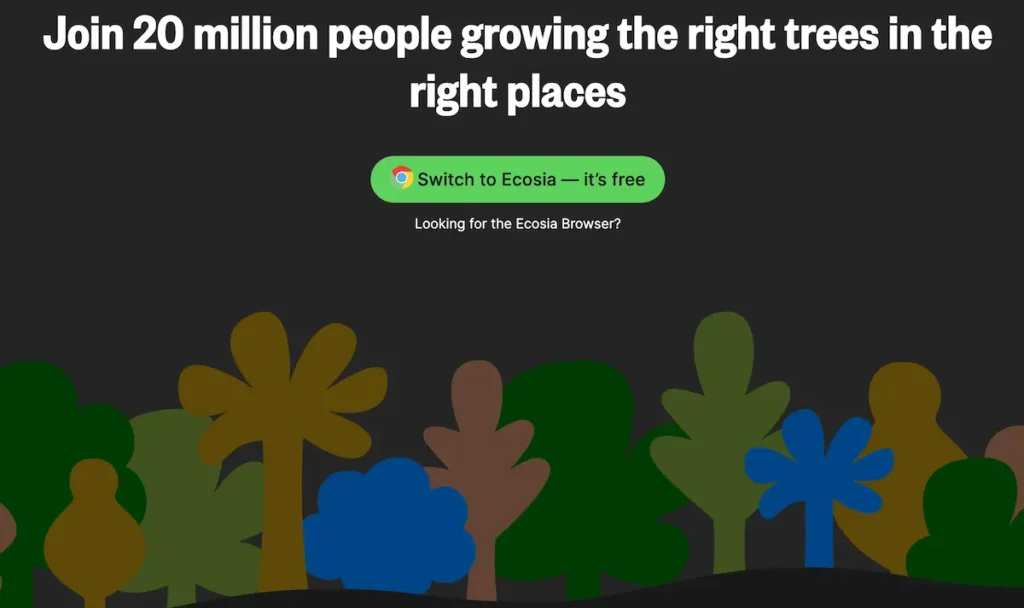
How Does Ecosia Work?
Ecosia functions like any other search engine, but with one key difference—it uses its profits to plant trees. The company generates revenue from the ads displayed in search results. Each time a user clicks on an ad, Ecosia earns money from the advertiser. Even if users don’t click on ads, ad space still becomes valuable as the number of users grows.
Ecosia’s business model allows it to remain financially sustainable without selling user data—a stark contrast to major tech companies like Google. Much like DuckDuckGo, Ecosia prioritizes privacy, meaning it doesn’t track users or personalize search results based on browsing history.
A Transparent, Non-Profit Business Model
Unlike most corporations that focus on maximizing shareholder profits, Ecosia follows a steward-ownership model. This means:
- No profits can be taken out of the company.
- No external entity can own shares or sell them for profit.
- All revenue is reinvested into its mission.
Christian Kroll explained Ecosia’s philosophy in a blog post, saying: “We’re not interested in maximizing profits; we’re interested in maximizing the number of trees we plant.”
To ensure complete transparency, Ecosia publishes monthly financial reports detailing its income, expenses, and the number of trees planted. In December 2024, Ecosia earned over $4 million, with an average monthly revenue of around $3 million.
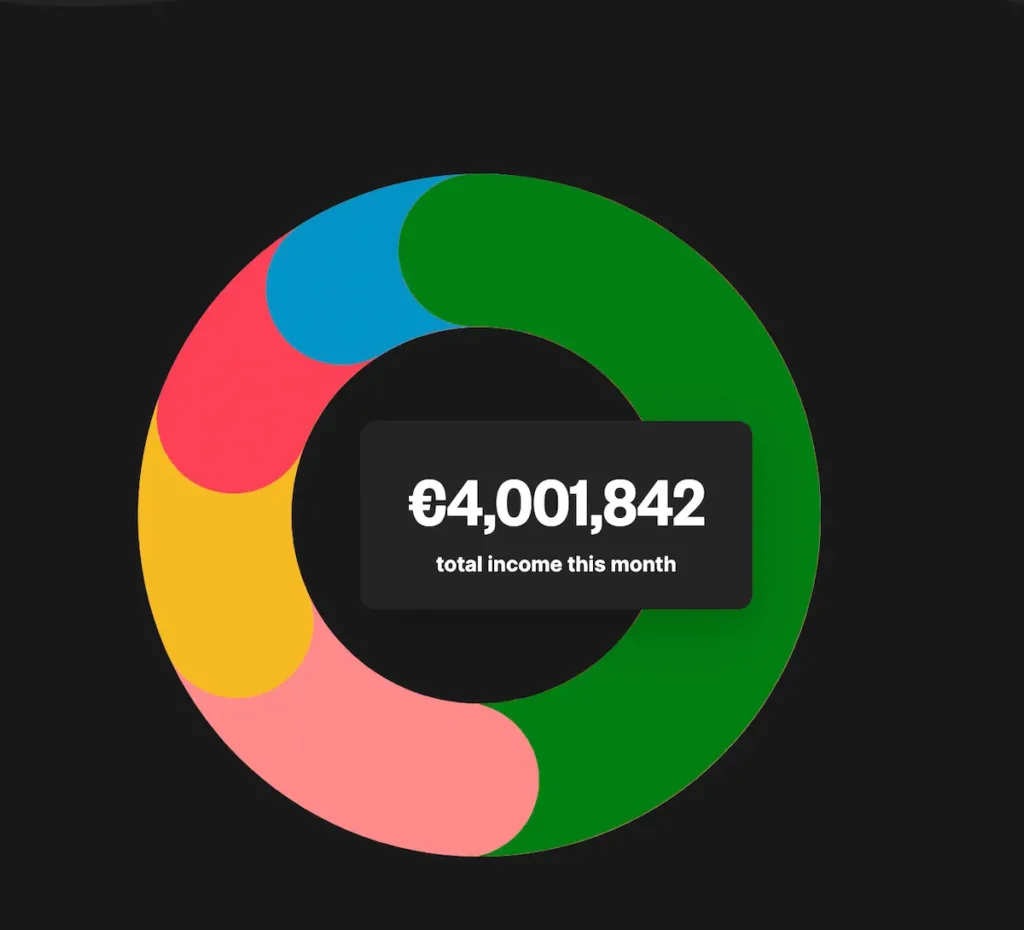
Where Does the Money Go?
Ecosia’s revenue is primarily used for:
- Tree-planting and conservation projects worldwide.
- Investments in renewable energy—20% of its surplus funds go toward solar power, regenerative agriculture, and grassroots activism.
- Operational costs such as personnel, office expenses, travel, and server maintenance.
A Growing Community for Climate Action
Today, over 20 million people use Ecosia as their default search engine, helping fund global reforestation efforts with every search. For environmentally conscious individuals, switching to Ecosia is a simple yet impactful way to support climate action without spending a dime.
As deforestation and climate change continue to threaten ecosystems, Ecosia provides a sustainable alternative to traditional search engines—one that turns internet searches into trees and contributes to a greener planet.
